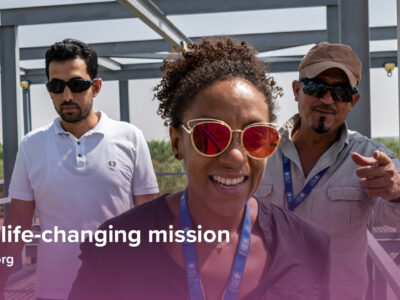The United Nations Entity for Gender Equality and the Empowerment of Women (UN-Women) was established by General Assembly resolution 64/289 of 2 July 2010 on system-wide coherence, with the mandate to assist countries and the United Nations system itself to progress more effectively and efficiently toward the goal of achieving gender equality, women’s empowerment, and upholding women’s rights. UN Women, grounded in the vision of equality enshrined in the Charter of the United Nations, works for the elimination of discrimination against women and girls; the empowerment of women; and the achievement of equality between women and men as partners and beneficiaries of development, human rights, humanitarian action and peace and security.
The mining industry in Nigeria plays a significant role in the country’s economic development, contributing to the production of a range of minerals and providing employment and income opportunities for a large number of people. The main minerals that are mined in Nigeria include coal, limestone, zinc, lead, tin, limestone, and barite. The major mining sites in Nigeria are located in the states of Benue, Kogi, Nasarawa, and Plateau, as well as in the Federal Capital Territory (FCT). However, the industry has also been associated with various challenges, including environmental degradation, social conflict, and gender inequality.
The mining industry in Nigeria provides employment and income opportunities for a large number of people, including miners, support staff, and local communities. The industry is also a major contributor to the country’s GDP, with the minerals sector accounting for around 0.3% of GDP in 2019. The mining industry in Nigeria also plays an important role in the country’s infrastructure development, with the construction of roads, bridges, and other transportation systems that are needed to access mining sites and transport minerals to market. In addition to its direct economic contributions, the mining industry in Nigeria also has indirect economic impacts. For example, the industry supports local businesses and services, such as transportation, accommodation, and food services, and it helps to stimulate economic growth and development in the regions where mining takes place.
The mining industry in Nigeria also provides employment and income opportunities for a large number of people, including miners, support staff, and local communities. This can help to reduce poverty and improve living standards in the regions where mining takes place. Diversification of the economy: The mining industry in Nigeria has the potential to contribute to the diversification of the country’s economy, which is currently heavily reliant on the oil and gas sector. By developing the mining sector, Nigeria can reduce its reliance on oil and gas and create a more diversified and resilient economy. Additionally, the mining industry in Nigeria has the potential to generate significant export earnings for the country. Nigeria exports a range of minerals, including coal, limestone, zinc, lead, and tin, and these exports can contribute to the country’s foreign exchange earnings and contribute to economic growth and development in the country.
Despite the economic benefits of the mining industry in Nigeria, the sector also faces a number of challenges that can impact its ability to contribute to the country’s development. As part of its commitment to engendering legal and policy frameworks in Nigeria to advance gender equality and the empowerment of women, as enshrined in UN Women’s 5-year Strategic Note (2023 -2027) and the SDGs, UN Women Nigeria Country Office seeks to engage a national consultant to conduct of a gender responsive assessment of the mining industry in Nigeria. The assessment will prioritize the identification of the challenges faced by women in the industry and recommend strategies for addressing these challenges, while proffering action plans for mainstreaming gender in the industry. The key objectives of the assessment will include:
- To understand the gender dynamics within the mining industry in Nigeria, including the roles, responsibilities, and opportunities available to women and men.
- To identify gender gaps in terms of challenges faced by women in the mining industry, including issues related to health and safety, working conditions, unequal power relations, Gender Based Violence, access to resources and opportunities.
- To assess the impact of the mining industry on the local community, including any negative impacts on the environment and on the social and economic well-being of women and men.
- To recommend strategies for addressing the challenges faced by women and men in the mining industry and for promoting gender equality and social inclusion.
- To identify entry points for mainstreaming gender within the Sector











Comments